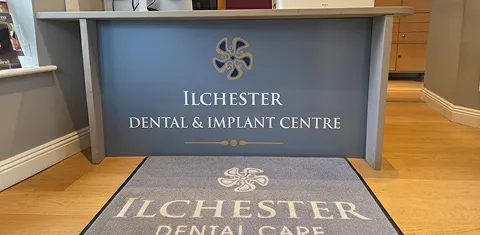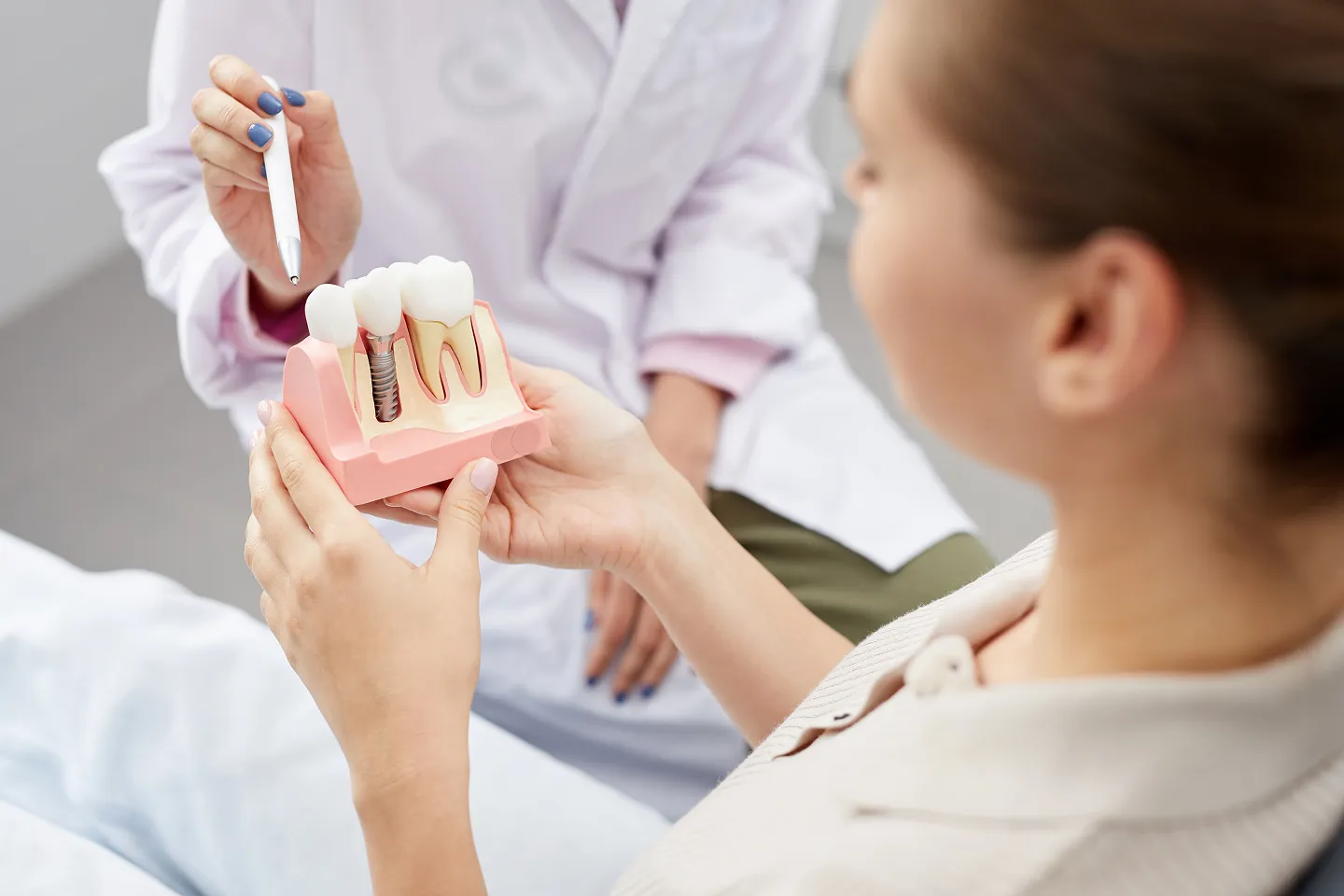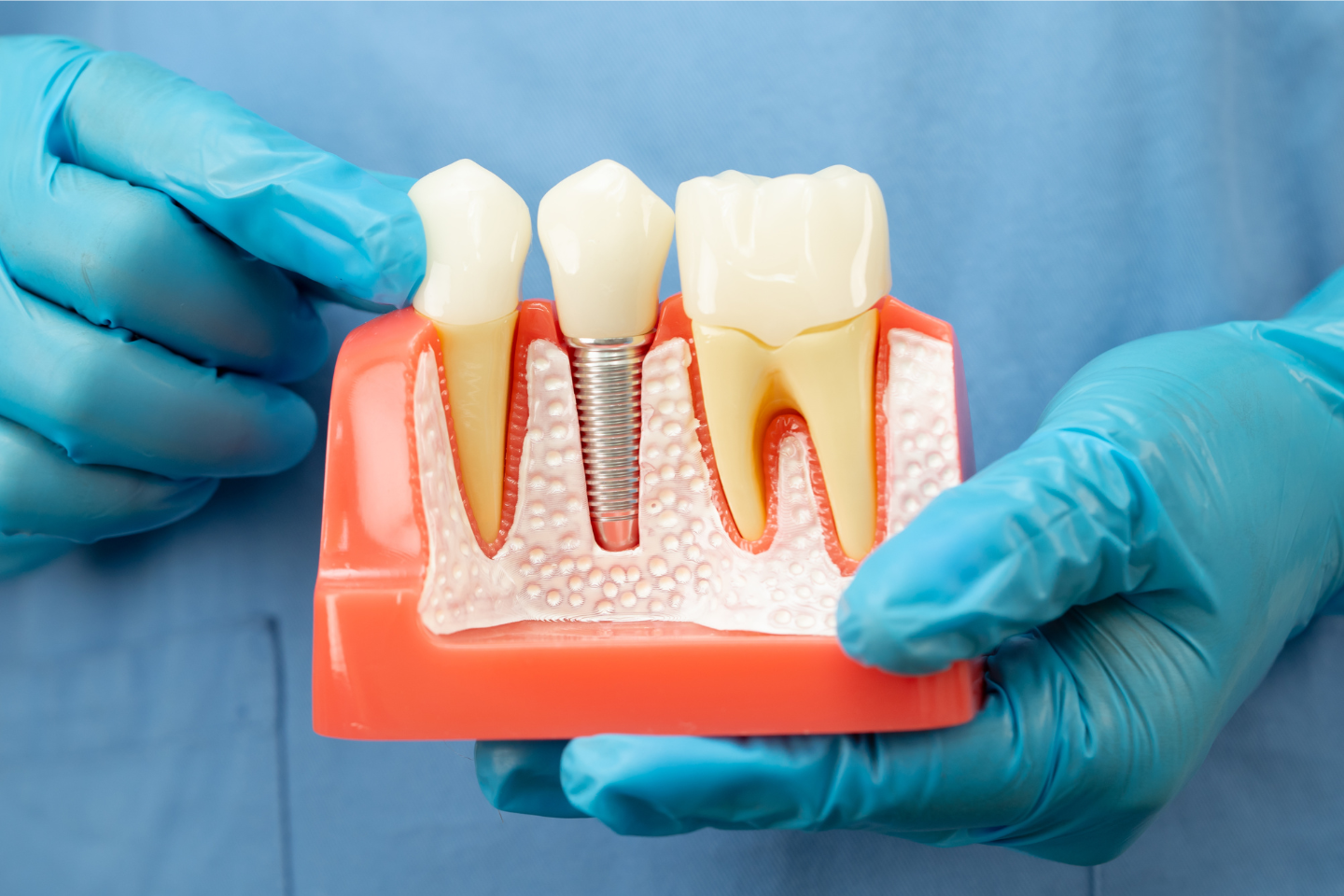Periodontal treatment is offered in the event of continued swelling, soreness, or infection of the gums and tissues supporting your teeth. The two main types of gum disease are gingivitis and periodontitis.
Gingivitis means inflammation of the gums, so the gums around certain teeth are very red and swollen. Often, these areas bleed when brushed or eating. This can cause a bad taste in your mouth and potentially bad breath, too. If left untreated, gingivitis can develop into periodontitis.
Periodontal diseases lead to bacterial growth below the visible ‘edge’ of the gum, down into the root surfaces. Here, the gums detach from the tooth, forming ‘pockets’. Naturally, the body’s immune system then fights this bacterium. This reaction between the two can then lead to a breakdown of the bone and connective tissues that hold teeth in place. If left untreated, this can lead to the destruction of the surrounding bone, gums, tissue, and eventually teeth.
Untreated periodontal diseases can lead to the loss of teeth. Whilst it is the major cause of tooth loss, and most people have periodontal diseases in some form, this usually develops very slowly. With support, it can be slowed to the point of allowing you to keep the majority of your teeth in place for life.
Recent research has also linked periodontal diseases with more general health conditions, particularly cardiovascular issues such as heart disease. Whilst research is ongoing, the evidence continues to mount that a high level of oral health can also improve general health.
Gum disease often develops painlessly in its early stages, which means the ongoing damage can go unnoticed. As the condition progresses, you may begin to notice gum soreness or, in some cases, gum abscesses. If you suspect any issues with your gums, your first step should be to see your dentist. They can examine your gums to determine if periodontal disease is present and assess the severity of the condition.
In some cases, X-rays may be taken to evaluate the extent of potential bone loss. This is an important step, as it helps guide the appropriate treatment plan moving forward.
A good oral care routine at home is essential in controlling gum disease. Brushing thoroughly and cleaning between your teeth regularly can help prevent the condition from worsening and support professional treatments.
For people with early-stage gum disease (gingivitis), a routine dental cleaning combined with better oral hygiene can often reverse the condition. Since there’s no bone loss yet, this conservative approach removes harmful bacteria before the disease progresses.
To maintain healthy gums, you should:
If gum disease has advanced beyond gingivitis, you may require scaling and root planing—a deeper cleaning that removes plaque and bacteria beneath the gums where a toothbrush and floss can’t reach.
During this procedure:
This procedure is often done over two or more visits, depending on the severity of the condition.
When gum disease is more advanced and bone loss has occurred, surgical treatments may be necessary to restore oral health.
For moderate to severe periodontitis, pocket reduction surgery may be recommended. During this procedure:
This procedure may be combined with regenerative therapies such as bone grafting, gum grafting, or guided tissue regeneration (GTR).
Some periodontists offer LANAP, a minimally invasive laser treatment that targets diseased gum tissue while preserving healthy tissue. It helps reduce pocket depth and promote healing without traditional surgical incisions.
Though results vary, LANAP can be an effective alternative for some patients who prefer less invasive options.
If bone loss has occurred due to gum disease, bone grafting may be necessary to rebuild the supporting bone around your teeth.
After removing the infection, your periodontist places a bone grafting material in areas where bone has eroded. This serves as a framework that encourages your body to regenerate natural bone over time.
For patients with gum recession caused by periodontal disease, gum graft surgery can restore lost gum tissue and protect exposed roots.
Tissue may be taken from the roof of your mouth or sourced from a tissue bank, and then grafted to the receded area to improve both aesthetics and comfort.
This advanced procedure helps regenerate bone and tissue lost to periodontitis. A biocompatible membrane is placed between the gum and bone grafting material to prevent soft tissue from growing where new bone should form.
PRF and PRP therapies use your own blood plasma to accelerate healing and tissue regeneration after periodontal surgery.
A small blood sample is processed in a centrifuge to separate platelet-rich plasma or fibrin, which is then applied to the surgical site.
These techniques promote faster healing, reduce discomfort, and are completely biocompatible and safe.
Successful treatment can control periodontal disease when combined with diligent oral hygiene at home. However, as inflamed and swollen gums heal, gum recession may occur. This can have a cosmetic impact on your smile and sometimes lead to increased sensitivity in the newly exposed areas.
If this happens, your dentist can help with:
It’s important to understand that periodontal disease cannot be completely cured. However, with successful treatment and improved home care, it can be effectively controlled and slowed, helping you maintain healthier gums and teeth over time.
Periodontics is a branch of dentistry focusing on the structures that support and surround the teeth, including gums and bone.
Symptoms include swollen or bleeding gums, persistent bad breath, and loose teeth.
Treatment may involve deep cleaning (scaling and root planing), antibiotics, or surgical procedures, depending on the severity.
Yes, through regular brushing, flossing, professional cleanings, and avoiding tobacco use.
Yes, research suggests a connection between gum disease and conditions like heart disease and diabetes.

.svg)

Explore our blog for expert advice, treatment insights and oral care tips.

Wondering if dental implants feel natural? Learn how implants restore chewing, speech, and comfort from Ilchester Dental & Implant Centre in Yeovil.

Learn how dental implants support long-term oral health, protect jaw bone, and provide safe tooth replacement in Yeovil.

Learn how to maintain oral health after root canal treatment with Ilchester Dental & Implant Centre. Discover aftercare tips, crown importance, hygiene routines, and long-term dental care in Ilchester and Yeovil.